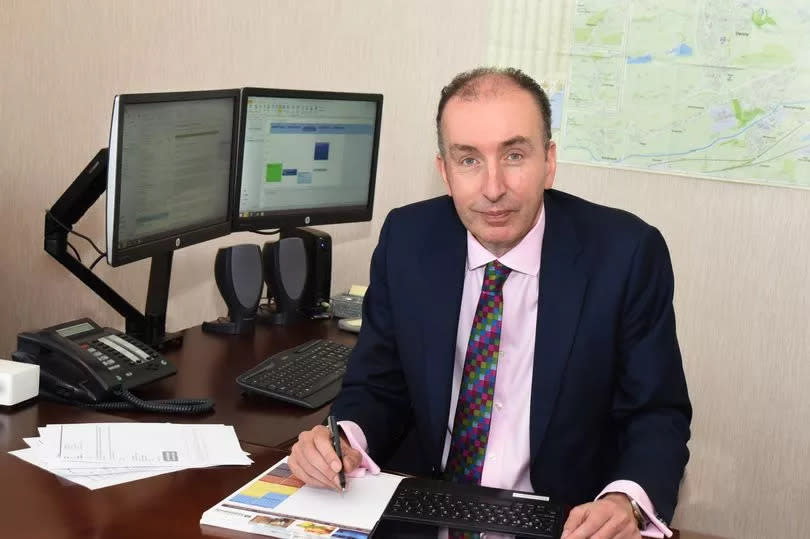Falkirk Council object over plans to split up the area for Scottish Parliament elections

Splitting the Falkirk council area into three different Scottish Parliament constituencies will be confusing for voters and difficult to administer, councillors have agreed.
Members of Falkirk Council unanimously backed a report by Chief Executive Kenneth Lawrie, which means the council will officially object to the proposals.
The latest suggestion from Boundaries Scotland is that the current Falkirk West and Falkirk East constituencies be replaced with Falkirk North and Linlithgow & Falkirk South, while Denny and Banknock should move to Cumbernauld & Kilsyth.
Read more: Worry for parents as Falkirk Council unveils plans to cut school hours
The leader of the council, Councillor Cecil Meiklejohn, said: "It's absolutely abhorrent that Falkirk seems to have been squeezed by the rest of the country and we have been split into three different parts.
"Natural links with communities have been broken and will create a huge amount of voter confusion and potentially an apathy to go out and vote because you may be unsure who your candidate is.
The result, she added, would also lead to confusion between multiple health boards and "a plethora of MPs and MSPs" - including regional MSPs - which "would be challenging".
Mr Lawrie told members that it was "regrettable" that the area would be split over three constituencies, particularly when the initial proposals from Boundaries Scotland had suggested no change.
"Falkirk as a result of its size is particularly well suited to being divided into two constituencies and these constituencies are well understood and recognised by voters," he said.
The chief executive said there were also concerns that the proposed constituency names - Falkirk North and Falkirk South - are also names of council wards which could create a significant risk of "voter confusion", especially given recent changes to Westminster constituencies.

He added that the names did not reflect the geography of the area and Falkirk west and east were better understood by residents.
He was also concerned that the changes would create administrative difficulties with traditional polling areas becoming separated.
This is the second stage of Boundaries Scotland's review of Scottish Parliament constituencies and Mr Lawrie admitted he was surprised to have seen such a big change from the first stage.
Mr Lawrie said: "In the initial proposal there were no changes to the status quo and from our perspective that seemed very good so we didn't object."
However, several other areas did complain which led to major differences in the recently published second review.
Mr Lawrie said the council would make it clear that it objects to the proposals but as a reserve position they would also want to make it clear that if the changes go ahead, Denny should be mentioned in the Cumbernauld & Kilsyth constituency name to make it clearer to voters.
Labour councillor Euan Stainbank said he fully supported the council's position but suggested an addendum that would highlight the "acute impact" on Banknock, which would be separated from neighbouring Haggs and Longcroft.
His Labour colleague Cllr Alf Kelly was very concerned at the impact the new boundaries would have on the village.
However, the SNP's deputy leader, Councillor Paul Garner said he could not support anything that would lead to further splitting the communities in his ward, which contains Denny and Banknock.
The motion to formally object was passed unanimously but the addendum was not accepted.
For more Falkirk stories, sign up to our newsletter here.

 Yahoo News
Yahoo News 
